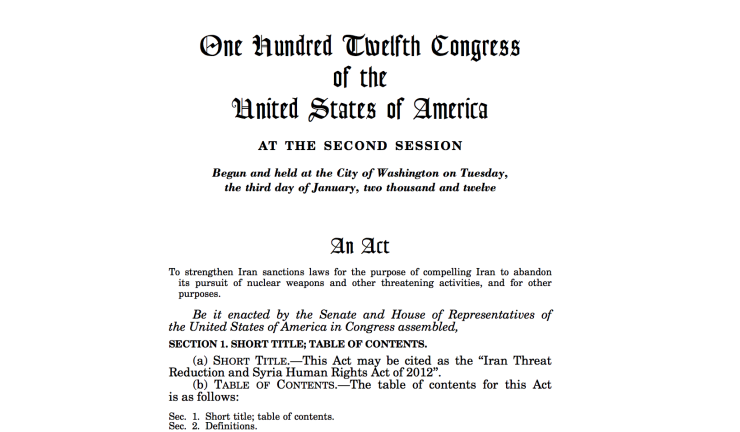I Been Bad, and I Don’t Care: NYT Edition
It’s no secret that we are in the midst of a bout of exuberance over the opening of the Iranian marketplace. Major oil firms are accompanying their state dignitaries to Iran, while European and Japanese trade delegations seemingly stroll in and out of Iran on a weekly basis. For the first time in more than a half-decade (if not much longer), there is genuine excitement about doing business with Iran.
This excitement is understandable, perhaps even justified – except in the case of Americans. The reason is apparent to those who have studied close the text of the nuclear deal or paid attention to statements from U.S. officials: Under the nuclear deal, the U.S. will lift all secondary nuclear-related economic and financial sanctions, but will largely leave in place the U.S. trade embargo with Iran.
That embargo restricts nearly all economic activity between the U.S. and Iran and imposes civil and criminal penalties on U.S. persons that violate sanctions prohibitions. But that doesn’t stop some U.S. persons from cashing in on this opportune time.
See here in this New York Times piece on Iran’s economic opening, where one expert quoted admits to acting in violation of current U.S. sanctions laws:
“They had no one to sell to inside Iran but now, with the nuclear deal done, everything is falling into place,” said one well-established Iranian-American consultant who asked to remain anonymous because his business activities are punishable under United States law as long as sanctions remain in place.
The Iranian-American consultant is correct. Under the U.S. trade embargo, the provision of consultancy services by a U.S. person to Iran would be prohibited (31 C.F.R. §§ 560.204 and 560.206), as it would be a prohibited export of services to Iran and trade-related dealing with Iran. Moreover, to the extent that the consultant is also facilitating transactions between foreign persons and Iranian parties – which seems likely considering their comparative advantage – he or she would also stand in violation of the ITSR’s prohibition on facilitation by U.S. persons (31 C.F.R. § 560.208).
Despite all this (admitted) illegality, though, what is refreshing is that – at the very least – the Iranian-American consultant is getting the law right. This person might be aggressively ignoring it, but at a time in which most fail to appreciate the fact that the U.S. trade embargo with Iran will survive the nuclear deal, an understanding that U.S. persons cannot undertake most transactions in or with Iran – both yesterday, today, and for the foreseeable future – is one-up on most. For us sanctions lawyers, it is appreciated.



